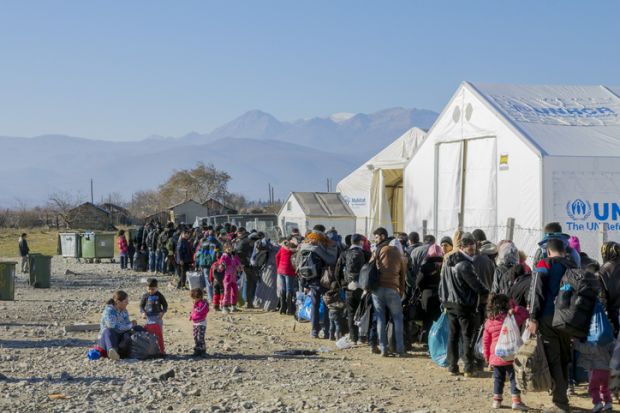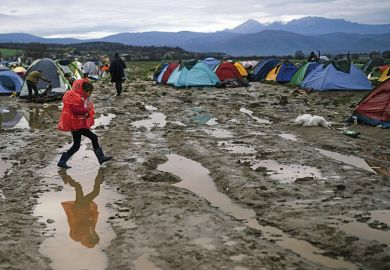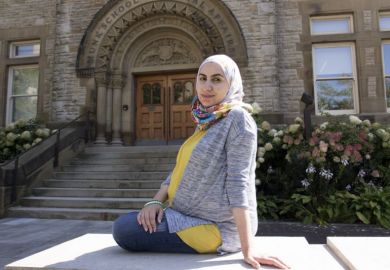The Norwegian government hopes to take to a new level the system of “qualifications passports” which gives refugees lacking documentation access to higher education or jobs.
The European Qualifications Passport for Refugees was devised by the Norwegian Agency for Quality Assurance in Education and the UK National Academic Recognition Centre. The scheme is overseen by the Council of Europe’s Education Department and was piloted in Greece in 2017, where 91 refugees were interviewed and 71 given such passports.
“If a refugee has full documentation, they can go through the normal recognition channels,” explained Sarah Keating, head of the division of cooperation and capacity building at the Council of Europe’s education department. “If not, they can request an assessment for the EQPR. This involves a questionnaire and a face-to-face interview by a team of two credential evaluators in the language the candidate feels the most comfortable with (mother tongue or language of instruction).” Refugees who do receive a passport can then avoid the need for further evaluation procedures when they move to another country.
As the project has developed, continued Ms Keating, “there have been 319 candidates and 249 have been issued the qualifications passport”. By the end of 2018, 21 of them had used it to enrol in universities across Europe.
Although figures are hard to come by, it is clear that this represents only a small proportion of potential candidates. When UK Naric launched a separate “qualification recognition service” for the 650,000 Syrian refugees in Jordan, they received more than 1,000 applications. “Our sense is that the majority of the [126,000] refugees in the camps there have partial or missing documentation,” noted a spokesperson. Many would no doubt be eligible for qualifications passports.
The Norwegian government has now announced plans to try and bridge this gap.
“The possibility to upscale the project is an important reason why we grant more money, so that even more refugees may receive a qualifications passport,” said the country’s minister of research and higher education, Iselin Nybø. The ministry has increased its investment from NRK550,000 (£48,700) in 2018 to a NRK1 million this year to raise awareness of the passports and train up more evaluators.
“After two years of fine-tuning the methodology to ensure it is credible,” agreed Ms Keating, “we are ready for the next step. This includes upscaling the use of video interviews (instead of face-to-face) done by a pool of trained evaluation experts with various linguistic backgrounds and knowledge of higher education systems, mainly from national information centres on recognition.” Along with the major bodies in Italian higher education, such centres in Armenia, Canada, France, Germany and the Netherlands had all recently come on board the EQPR programme.
In a longer-term effort to build on the passports’ “potential to help refugees worldwide”, Ms Nybø had also “started discussing with the Council of Europe and Unesco whether we together could turn this into a global project, and include other countries that also see the great potential”.
Although talks were only beginning, Ms Keating confirmed that “Unesco seems interested in exploring the possibility of developing a global qualification passport for refugees, based on the experience with the EQPR…The Council of Europe is positive to the idea and to contributing the experience of the EQPR.”
Register to continue
Why register?
- Registration is free and only takes a moment
- Once registered, you can read 3 articles a month
- Sign up for our newsletter
Subscribe
Or subscribe for unlimited access to:
- Unlimited access to news, views, insights & reviews
- Digital editions
- Digital access to THE’s university and college rankings analysis
Already registered or a current subscriber?








